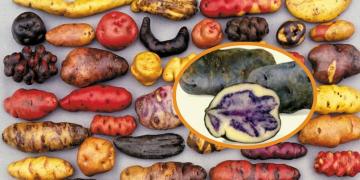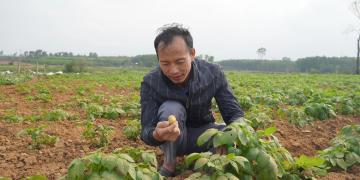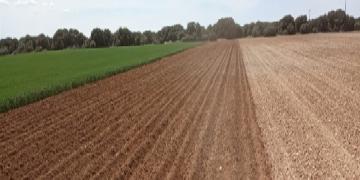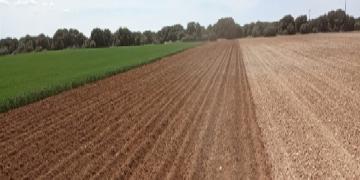Will we grow the perfect potato in the future thanks to AI?
Scientists from Utrecht University and TU Delft have developed an AI that predicts potato growth. This could potentially provide us with more food security in the future.

The potato is one of the most important food crops in the world. It is estimated that around 300 million tons of potatoes are produced worldwide, which at least a billion people eat. The fact that the crop is heavily dependent on the use of fertilizers and pesticides is therefore problematic. Not only because it damages biodiversity, but also because crop failures are expensive.
An AI that predicts potato growth
But now there is a new tool that may offer a solution. Biologists from Utrecht University and TU Delft wrote this last week in the scientific journal Nature Microbiology . With the tool, it is now possible for the first time to predict the quality of a batch of seed potatoes in advance – with artificial intelligence.
Every potato farmer will confirm it to you: even in a field full of genetically identical potato plants, one plant will grow much better than the other. Researchers have long suspected that bacteria and fungi play a role in this, but they were not certain. Now there is an AI model that confirms this suspicion.
The ideal potato
The AI was able to predict the growth potential of a seed potato based on a large collection of data. First, the researchers analyzed thousands of samples from 240 different test fields to determine the precise bacterial and fungal composition of the potato. A few months later, drones were used to take images of potato plants that had sprouted from the same tubers.
"This yielded a huge amount of data," said co-author Yang Song of Utrecht University in a press release. "By combining these two types of data in the AI system, we discovered patterns that help predict which microbes produce the best potato growth."
The research proves that the composition of the various types of bacteria and fungi does indeed have a major influence on potato growth. Some bacteria, including Streptomyces , Acinetobacter and Cellvibrio seem to have a positive influence, while other types actually inhibit growth.
More AI crops possible in the future
And that insight goes beyond potato growth alone, according to lead researchers Roeland Berendsen of Utrecht University. In the future, researchers may be able to use such AI models to determine the ideal microbial mix of other plants. If crops become more robust and can therefore grow better, this will not only lead to fewer crop failures and less waste, but also fewer pesticides are needed.
’For the first time, we can now predict the quality of a batch of seed potatoes based on their microbial composition,’ says Berendsen. ’This means we are at the beginning of a new technology to improve agriculture with AI.’
Fuente: nationalgeographic.nl




